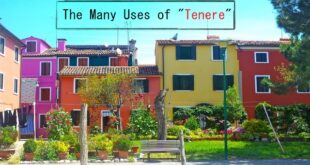To edit Fra Noi is to live in a time warp in which months fold in upon each other, and the present and future blur. As I write this column for the January issue, Thanksgiving is two days away, Christmas decorations are about to emerge from their boxes in the basement and the New Year seems like a distant dream. In the midst of this befuddling cocktail of holiday spirits, it’s hard to know which tone to strike. Should I be thankful? Joyful? Resolute? One thing is certain, though: When I think of our advertisers, it’s easy to feel all …
Read More »Leave it to the professionals
Given the hot real estate market, selling your home should be as easy as pie. But there are several factors you need to take into consideration before hanging your For Sale By Owner (FSBO) sign. The ongoing pandemic has impacted every step of the real estate sales process from showing to closing, and industry standards have been established by the National Association of Realtors to help protect sellers and buyers alike. Working with a real estate professional allows you to stay on top of all the safety protocols, implement all the right measures and secure the waivers necessary to protect …
Read More »Looking back and ahead
This January marks a hopeful look ahead to a healthier year. COVID was with us all last year and most of the year before. Many of us some of us decided to deal with the challenges head on while others decided to contend with them from the shelter of our own homes. Some of us have been personally touched by loss over this year whether brought on by COVID or as the result of living life in general. For some, the loss of a companion pet affected us more than we anticipated and just as much as the loss of …
Read More »Triumph of the spirit
This year’s Columbus Day celebration in Chicago might not have been the biggest ever, but it certainly was the most remarkable. Absolutely everything conspired against it, from the slow pace of city approval to forecasts of rain and fears of protests that kept some on the sidelines. But permits were finally issued; a promotional blitz ensued; and floats, cars, bands and other marching units were rallied in weeks instead of months. On Oct. 11, a lone bus arrived at Casa Italia along with a gray dawn to shepherd the intrepid to morning Mass at Our Lady of Pompeii Shrine. Fr. …
Read More »The holidays in Italy
Christmas in Italy There are several important holidays that Italians celebrate during the Christmas season (periodo di Natale), which begins on December 8th with L’Immacolata and ends on January 6th with L’Epifania. The feast of Santa Lucia on December 13th is also an important holiday in northern Italy. This saint day is celebrated with candles, special pastries and presents for children who have been good during the year. See the table below for a list of the important celebrations that take place in Italy during the Christmas season and some common phrases that Italians use to wish each other “happy …
Read More »An Italian-tinted Yuletide
Christmas is a time for celebration, but how we celebrate has changed over the centuries. How do you celebrate Christmas? Do you embrace the more secular version embodied by Santa Claus with his big bag of presents, or the more religious one in which gifts are given in recognition of God’s gift to us of His Son Jesus Christ? One tradition I embrace is the Christmas story told by Mario Avignone, the founder of this column. Fr. Pierini asked him decades ago to start writing Petals as a way of keeping Roseland alive in our hearts. In my 13 years …
Read More »A Taylor Street Thanksgiving
October through December is my favorite time of year. I’m that person who decorates for fall in August and drinks pumpkin spice lattes when it’s still 90 degrees. Out of that whole glorious season, Thanksgiving is my favorite holiday. Last year, I spent Thanksgiving in Treviso, Italy. I hadn’t planned on still being there that late in the season, but I can hardly complain. With 2020 being, well, 2020, it was a miracle I was in Italy at all. Since Thanksgiving is a uniquely American observance, it had me reminiscing about a magical celebration back home almost 20 years before. …
Read More »Buying and selling safely
Even with the more dangerous delta variant causing a rise in COVID infections, it’s still possible for you to safely search for the perfect home. Here are some rules to follow: First and foremost, protect yourself. By initiating your search online, you can get a glimpse of a property right from your living room. This way, you can safely learn if you want to know more. The key is knowing what to look for and noticing what may be hiding. The online photos are meant to grab your attention and highlight the home’s best features. Open floor plans, updated appliances …
Read More »National Monument a reality
This is the month of Thanksgiving and there is much to be thankful for, but I’d like to focus my gratitude on the Pullman National Monument. If you’ve been paying attention to anything having to do with Pullman, you’re aware by now of the great news coverage of the grand opening that took place over Labor Day weekend. Two days of public festivities and one day of speeches by dignitaries gave everyone from near and far the opportunity to celebrate the new National Park Service Visitor Center. For those who may have missed the information or photos, what we’ve always …
Read More »The Many Uses of “Tenere”
The Italian verb tenere has a wide range of meanings and its use lends a bit of sophistication to one’s Italian. It is important to “keep in mind” the nuances of the verb tenere to create sentences as we would in our native language. The Italian verb tenere is most often translated into English as “to hold” or “to keep.” It can be used in a simple way, to describe holding an object or holding another’s hand. As in English, the verb tenere can also mean “to hold,” with reference to capacity, as in how many objects or people can occupy …
Read More » Fra Noi Embrace Your Inner Italian
Fra Noi Embrace Your Inner Italian











